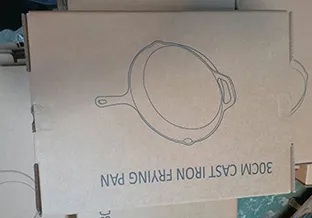
Is Cast Iron Superior for Cooking Versus Other Materials? Explore the Benefits Now
Is Cast Iron Better? A Comprehensive Look at the Benefits and Drawbacks
When it comes to cookware, cast iron has garnered a reputation as one of the best materials for both professional chefs and home cooks alike. But is cast iron truly better than other types of cookware, such as stainless steel, non-stick, or carbon steel? This article explores the advantages and disadvantages of cast iron cookware to help you determine if it’s the right choice for your culinary needs.
The Benefits of Cast Iron Cookware
1. Exceptional Heat Retention and Distribution One of the primary advantages of cast iron is its ability to retain heat. Once heated, a cast iron skillet or Dutch oven can maintain a consistent temperature, allowing for even cooking. This heat retention is particularly advantageous for tasks like searing meats or baking bread, where a stable heat source is crucial for achieving the best results.
2. Versatility Cast iron cookware is incredibly versatile. It can be used on the stovetop, in the oven, or even over an open flame. This makes it an ideal choice for a variety of cooking methods, including frying, baking, sautéing, and even grilling. Additionally, many cast iron pieces can go from the oven to the table, making for an appealing and rustic presentation.
3. Durability Cast iron cookware is known for its durability. With proper care, cast iron pans can last a lifetime and are often passed down through generations. They are much less likely to warp or degrade over time compared to other materials, making them a wise investment for serious cooks.
4. Natural Non-Stick Surface When seasoned correctly, cast iron develops a natural non-stick surface. This seasoning process involves coating the pan with a thin layer of oil and heating it, which creates a polymerized layer that helps prevent food from sticking. Unlike synthetic non-stick coatings, which can wear off over time, a well-maintained cast iron surface can provide excellent non-stick performance for years.
5. Health Benefits Cooking with cast iron has been shown to increase the iron content of food, which can be beneficial for people with iron deficiencies. Iron is an essential mineral that plays a crucial role in various bodily functions, including oxygen transport and immune response.
is cast iron better

The Drawbacks of Cast Iron Cookware
1. Weight One of the most notable downsides of cast iron cookware is its weight. Cast iron pots and pans can be quite heavy, making them difficult to handle, especially when full. This can be a significant consideration for those with limited strength or mobility.
2. Maintenance Cast iron requires more maintenance than other types of cookware. After use, it must be cleaned properly to maintain its seasoning and prevent rust. This usually means avoiding soap and instead using hot water and a stiff brush. Additionally, cast iron should be dried immediately and seasoned regularly to keep it in optimal condition.
3. Heat Sensitivity While cast iron holds heat well, it can be sensitive to temperature changes. This means that overheating a cast iron pan can lead to warping or damage. It's essential for cooks to gradually heat the pan and avoid extreme temperature fluctuations.
4. Reactivity Some foods, particularly those that are acidic (like tomatoes), can react negatively with cast iron, imparting unwanted flavors or colors to the dish. While a good seasoning can mitigate this issue, it's still something to consider when choosing recipes.
Conclusion
So, is cast iron better? The answer ultimately depends on your cooking style, preferences, and needs. Cast iron cookware offers many advantages, including excellent heat retention, versatility, durability, and potential health benefits. However, it also comes with specific challenges like weight, maintenance, and reactivity with certain foods.
For those who appreciate the unique qualities that cast iron brings to the kitchen, it can indeed be one of the best options available. However, for cooks who prefer low-maintenance and lightweight cookware, alternatives like stainless steel or non-stick may be more suitable. Ultimately, the best choice is the one that aligns with your cooking habits and culinary goals. Whether you choose cast iron or another material, the joy of cooking remains the same.
-
Premium Skillets Sets - Porcelain & Enamel Covered Cast Iron Cookware for Every KitchenNewsJun.24,2025
-
Premium Deep Cast Iron Pan – Versatile Enameled & Grill Options, Perfect for Frying and SaucesNewsJun.10,2025
-
Chipped Enamel Dutch Oven – Durable & Stylish Kitchen Essential for Even CookingNewsJun.10,2025
-
Best Cast Iron Cookware Set Sale Durable Pots & Woks DealsNewsJun.09,2025
-
Hanging Dutch Oven Oven Safe & Lid IncludedNewsJun.09,2025
-
16 Inch Dutch Oven - Heavy Duty Cast Iron for Large MealsNewsJun.09,2025


